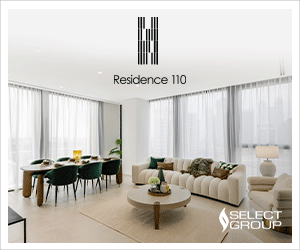As a multi-cultural hub of commercial activity, Dubai is a favorite amongst those looking for lucrative career opportunities and the ‘good’ life. With thousands of expats moving to Dubai and building new lives here, the vibrant city is positively bursting with residential properties to accommodate its growing population. Here is what you need to remember while renting a property in Dubai:
Lease Contract
Make sure your landlord registers the lease contract: Since 2010, all Dubai tenancy agreements are required to be registered with Ejari. This is usually done by the landlord, but you as a renter, can do it too.
Eviction from property
Your landlord cannot evict you on a whim: He may ask you to leave if he or his next of kin intend to move in. However, he needs to give you a written 12-month notice clearly stating the reason for eviction. Similarly, if your landlord wishes to sell the property, he needs to give you a 12-month notice. This means that you’re eligible to stay for one year after the notice. If the apartment is sold during the term of your contract, the new landlord will be required to abide by the terms of your agreement with the previous landlord and also give you a 12-month notification to vacate.
Rent Change
Your landlord cannot raise the rent arbitrarily: He should give you 90 days’ notice as per Dubai Tenancy Law (Law 26 of 2007). If this notice window is missed, then no increase can be made. If the 90-day notice is respected, then the second condition is that the rent increase should be within the permissible amount as indicated by the RERA rent calculator. Only if this is adhered to, can the landlord notify you of it, in writing.
There’s also a maximum percentage of rent increase that should be considered, as per the decree issued on December 18, 2013.
-
- If the existing rent is less than 10% below the market rental rate, no increase is permitted.
- Between 11% and 20% below the market rental rate, an increase of up to 5% is permitted.
- Between 21% and 30% below the average market rental rate, a hike of up to 10% is permitted.
- Between 31% and 40% below the market rental rate, an increase of up to 15% is permitted.
- If the current rent is more than 40% below the market rental rate, a hike of up to 20% is permitted.
Notice Period
There’s no limit on the number of cheques that can be demanded by a landlord: While some may accept 12 cheques, others may demand four cheques or even one cheque. In the run-up to the renewal, you must give the landlord 90 days’ notice: Whether a landlord wants to raise the rent or you want to move out, both must give each other 90 days’ notice.
Properties governed by the DIFC do not fall under RERA’s jurisdiction: DIFC has its own laws regarding tenancy and is not subject to Dubai Municipality’s tenancy laws. Hence, landlords are free to increase rent irrespective of the RERA Rental Index. If you’re renting in DIFC, it would be best if both you and your landlord agree on the rent increase before signing the agreement. Also, your landlord is not obligated to renew your lease unless your tenancy contract explicitly grants you a right to renew, regardless of his/her reason for non-renewal. DIFC rental agreements are subject to the jurisdiction of the DIFC Courts.
If the landlord is being unreasonable, file a case at the Rental Dispute Settlement Centre (RDSC) in the Dubai Land Department: The filing fee will be 3.5% of the annual rent (cannot be less than AED 500 or exceed AED 20,000) plus 3.5% of the claim amount in addition to administrative fees.
For more information about living in Dubai, visit https://www.zoomproperty.com



 Join Our Newsletter
Join Our Newsletter